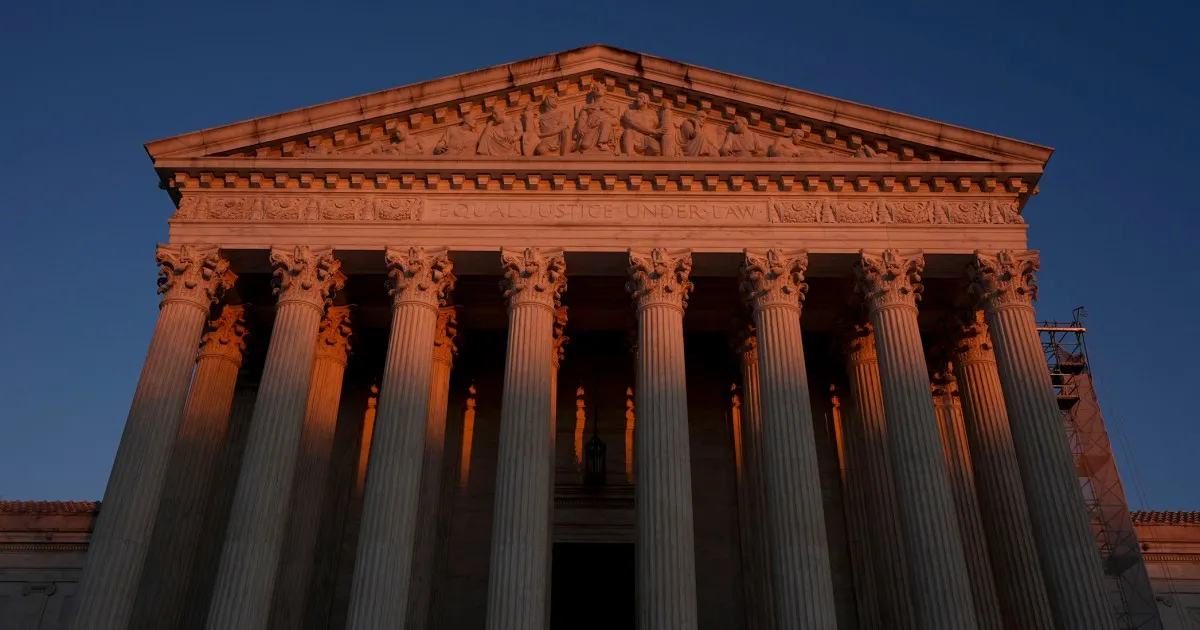
In a significant ruling on Friday, the Supreme Court put a halt to the Trump administration's efforts to deport Venezuelan nationals, whom the government claims are members of a notorious gang, to a notorious prison in El Salvador. The court's decision emphasized the need for detainees to receive a fair opportunity to raise legal objections against their deportation.
The 7-2 decision came as a response to a request from a group of Venezuelans currently detained in northern Texas. This ruling clarified an earlier, unusual order issued by the justices on April 19, which effectively paused any government plans to deport these individuals. The latest decision criticized the administration for providing the detainees with only 24 hours to file legal challenges, stating, "Under these circumstances, notice roughly 24 hours before removal, devoid of information about how to exercise due process rights to contest that removal, surely does not pass muster."
However, the court acknowledged that it was not in the best position to determine the specific due process requirements that should be afforded to the detainees. Consequently, the case has been sent back to an appeals court for further evaluation regarding the appropriate legal processes that should be followed.
This litigation centers on the Trump administration's controversial use of the Alien Enemies Act, an 18th-century law intended for wartime situations, to deport Venezuelans accused of being affiliated with the gang known as Tren de Aragua. Notably, the Supreme Court did not address the more profound question of whether the government can lawfully deport individuals under this act, focusing instead on the procedural rights of the detainees.
The court explicitly stated, "To be clear, we decide today only that the detainees are entitled to more notice than was given on April 18." This underscores the importance of ensuring that individuals have the opportunity to contest their deportation effectively.
Two conservative justices, Samuel Alito and Clarence Thomas, dissented from the majority opinion. In his dissent, Alito argued that the court should not intervene at such an early stage of the litigation, asserting that the justices lacked the authority to issue any relief in this situation.
The Trump administration's approach to summarily deport immigrants without allowing them the chance to contest their status as gang members reflects a broader hard-line immigration policy that has faced considerable resistance from both the courts and political opponents. The administration has claimed that the conditions necessary to invoke the Alien Enemies Act are met, suggesting that the gang acts as an arm of the Venezuelan government, a claim that remains highly contested.
The Supreme Court's order from April came shortly after a bus carrying Venezuelan detainees was en route to an airport but was turned back. This unexpected turn of events highlighted the urgency of the situation, putting the entire case on hold as the justices deliberated on the next steps. In a previous decision on April 7, the court had made it clear that any individuals the government wishes to deport under the Alien Enemies Act must be granted the opportunity to challenge that decision through habeas corpus petitions.
This latest ruling by the Supreme Court reinforces the critical importance of due process rights in immigration cases and sets a significant precedent for future legal challenges related to deportation and the treatment of detainees.